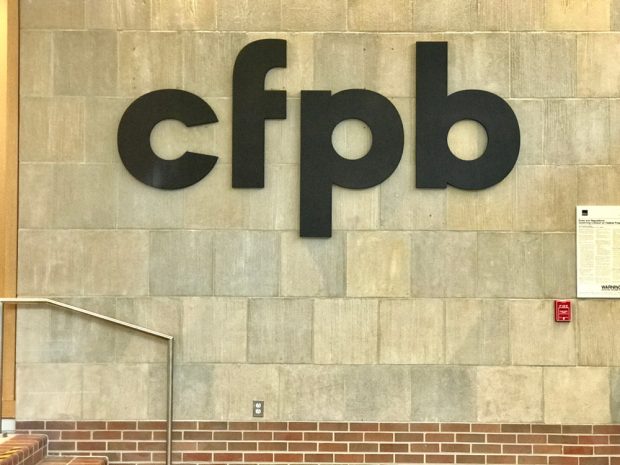 CFPB headquarters. (Source: Shutterstock)
CFPB headquarters. (Source: Shutterstock)
The CFPB said Thursday that the agency expects mortgage servicers to assist millions of homeowners as pandemic protections end and will closely monitor efforts to help borrowers remain in their homes.
"There is a tidal wave of distressed homeowners who will need help from their mortgage servicers in the coming months," Acting CFPB Director Dave Uejio said, as the agency released its expectations for servicers. "Responsible servicers should be preparing now. There is no time to waste, and no excuse for inaction."
Recommended For You
"Our first priority is ensuring struggling families get the assistance they need," he continued. Servicers who put struggling families first have nothing to fear from our oversight, but we will hold accountable those who cause harm to homeowners and families."
In recent days, bureau officials have rescinded guidance released as the pandemic emerged last year. That guidance said that the agency would evaluate financial institutions based on good faith efforts to comply with a variety of regulations. In announcing the recissions, they said they would resume evaluating supervised institutions based on the regulations.
One credit union official questioned the fairness and timing of the CFPB actions. "I can't help escape the feeling that financial institutions are being assumed guilty until proven innocent," Henry Meier, senior vice president and general counsel of the New York Credit Union Association wrote in his blog, "New York's State of Mind."
Meier, who always emphasizes that the blog is his own and does not represent the views of the association later added, "Maybe the Bureau hasn't read the news in the last couple of days, but the virus is still spreading."
Agency officials said that since pandemic assistance legislation has passed, 6.9 million homeowners have entered a forbearance program. As of January 2021, more than 2.1 million borrowers in those programs were more than 90 days behind on their mortgage payments. The agency said that Black and Hispanic homeowners were more than two times as likely to be behind on housing payments as of December 2020.
The agency said that about 242,000 borrowers who were not in forbearance programs were 90 days or more delinquent as of January.
"Consequently, the Bureau will be paying particular attention to how mortgage servicers respond to borrower requests for loss mitigation assistance and process loss mitigation applications," the agency said.
Of the borrowers not in forbearance programs, as of January, about 242,000 were 90 days or more delinquent.
The agency said that with the expiration of federal foreclosure moratoriums at the end of June, mortgage servicers will have "ramped-up capacity" to respond to homeowners who likely need loss mitigation assistance.
CFPB officials said they will evaluate servicers based on several criteria, including whether the servicers:
- Contact borrowers in forbearance before the end of the forbearance period so they have time to apply for help.
- Work with borrowers to ensure that they can obtain all the necessary documentation to apply for assistance.
- Have effective means for communicating with borrowers with limited English proficiency.
- Are fair in evaluating a borrower's income, including public assistance, child-support, alimony, and other sources.
- Ensure that hold times are not longer than industry averages.
- Comply with state and federal regulations to ensure that homeowners have an opportunity to save their homes.
In his blog, Meier said the "regulatory wave" is not fair. "What has me ticked-off this morning is that the Bureau has proclaimed that this avalanche of regulations is more important to enforce than allowing institutions to continue to work through the pandemic in good faith," he wrote.
© Touchpoint Markets, All Rights Reserved. Request academic re-use from www.copyright.com. All other uses, submit a request to [email protected]. For more inforrmation visit Asset & Logo Licensing.






